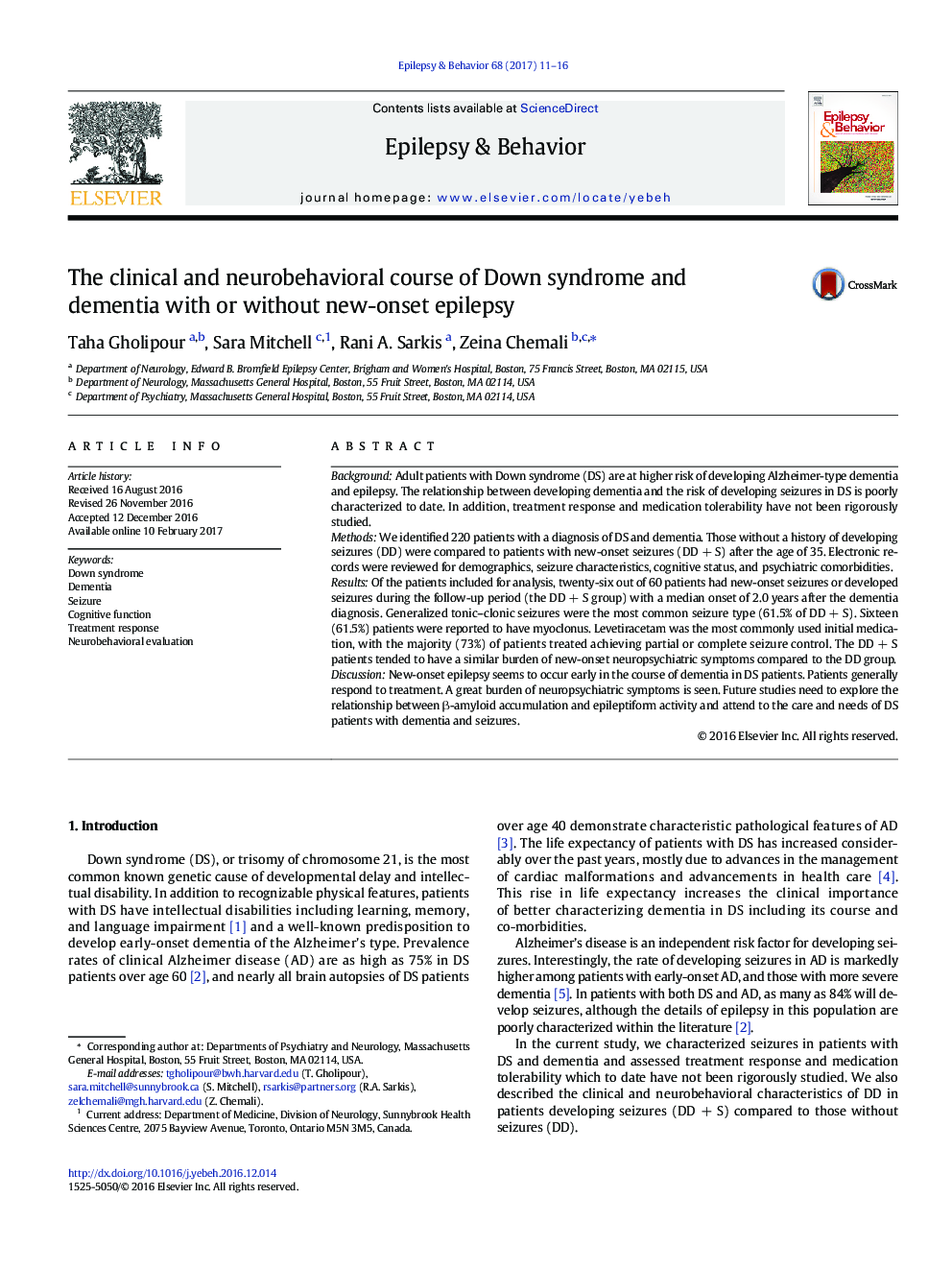| کد مقاله | کد نشریه | سال انتشار | مقاله انگلیسی | نسخه تمام متن |
|---|---|---|---|---|
| 5628037 | 1579824 | 2017 | 6 صفحه PDF | دانلود رایگان |
- Patients with Down Syndrome may suffer from seizures early in the course of dementia.
- Dementia often precedes the first seizure.
- Patients have varied seizure semiologies and good response to anti-seizure drugs.
- Patients with Down Syndrome and dementia who develop seizures have a greater burden of neuropsychiatric symptoms.
BackgroundAdult patients with Down syndrome (DS) are at higher risk of developing Alzheimer-type dementia and epilepsy. The relationship between developing dementia and the risk of developing seizures in DS is poorly characterized to date. In addition, treatment response and medication tolerability have not been rigorously studied.MethodsWe identified 220 patients with a diagnosis of DS and dementia. Those without a history of developing seizures (DD) were compared to patients with new-onset seizures (DD + S) after the age of 35. Electronic records were reviewed for demographics, seizure characteristics, cognitive status, and psychiatric comorbidities.ResultsOf the patients included for analysis, twenty-six out of 60 patients had new-onset seizures or developed seizures during the follow-up period (the DD + S group) with a median onset of 2.0 years after the dementia diagnosis. Generalized tonic-clonic seizures were the most common seizure type (61.5% of DD + S). Sixteen (61.5%) patients were reported to have myoclonus. Levetiracetam was the most commonly used initial medication, with the majority (73%) of patients treated achieving partial or complete seizure control. The DD + S patients tended to have a similar burden of new-onset neuropsychiatric symptoms compared to the DD group.DiscussionNew-onset epilepsy seems to occur early in the course of dementia in DS patients. Patients generally respond to treatment. A great burden of neuropsychiatric symptoms is seen. Future studies need to explore the relationship between β-amyloid accumulation and epileptiform activity and attend to the care and needs of DS patients with dementia and seizures.
Journal: Epilepsy & Behavior - Volume 68, March 2017, Pages 11-16
